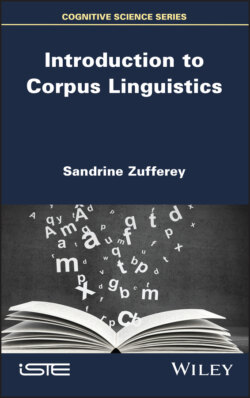Читать книгу Introduction to Corpus Linguistics - Sandrine Zufferey - Страница 13
1.2. Empiricism versus rationalism in linguistics
ОглавлениеCorpus linguistics is an empirical discipline, which means that it uses data produced by speakers in order to study language. This methodology is opposed to the rationalist method, which functions by looking for answers by relying on one’s own linguistic knowledge, rather than looking for it in external data. Let us take an example. In order to determine whether the phrase “When do you think he will prepare which cake?” is grammatically correct or not, the use of empirical methodology would go through large corpora to find whether this syntactic structure is used by English speakers or not.
If sentences following such a syntactic structure never or almost never appear in the corpus, linguists might conclude that this sentence is only rarely used in English. Rationalist methodology, on the contrary, might respond to the same issue by relying on the intuitions of linguists. In this particular case, they might wonder whether they could produce such a sentence or not, whether it seems correct or incorrect depending on their knowledge of the language and might infer a grammaticality judgment from it. Grammaticality judgments are often classified into three types: correct, incorrect or marked, in the event that a sentence may seem possible, but sounds unnatural.
This example illustrates a fundamental difference between empirical and rationalist methodology. While the rationalist methodology leads to the formulation of categorical judgments, the empirical methodology provides a more refined answer to this question, since the observation of corpus data offers a precise indication of frequency, rather than a result in terms of absence or presence. This is one of the reasons why many linguists currently consider that the empirical methodology better matches a scientific approach (in the sense of confrontation against the facts) than a purely rationalist method for studying language.
Nonetheless, the choice between the use of empirical or rationalist methods is not limited to the field of linguistics. Certain scientific branches such as physics, chemistry, as well as sociology and history are essentially empirical disciplines. In fact, both physicists and historians base their insights on external data, which they collect in the world, in order to build a theory, test it and draw conclusions from it. On the other hand, other disciplines such as mathematics or philosophy are traditionally based on a rationalist approach, since mathematicians and philosophers use their own reasoning to build theories and to draw conclusions, rather than from the collection and observation of external data. Philosophers often resort to thought experiments, but these are not experiments in the empirical sense of the term, because they are based on the reflective abilities of researchers.
